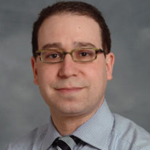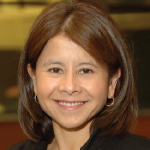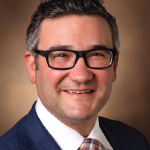Three new fellows presented their award-winning theses at the Triological Society’s 122nd Annual Meeting, held in conjunction with the Combined Otolaryngology Spring Meetings May 3–5, 2019 in Austin, Texas.
The Harris P. Mosher Award, established in 1957, recognizes excellence in clinical research. The Edmund Prince Fowler Award for Basic Research dates back to 1971, while the Maureen Hannley Award for Alternative Science was established in 2016 to honor Dr. Hannley’s work in assisting young researchers with preparation of their theses and mentoring candidates for the Triological Fellowship.
Harris P. Mosher Award for Clinical Research
 David P. Goldstein, MD, MSc, is an associate professor in the department of otolaryngology-head and neck surgery at the University of Toronto in Canada. His thesis, “Frailty as a Predictor of Outcomes in Patients Undergoing Major Surgery for Head and Neck Cancer: A Prospective Cohort Study,” was honored with the 2019 Harris P. Mosher Award for Clinical Research.
David P. Goldstein, MD, MSc, is an associate professor in the department of otolaryngology-head and neck surgery at the University of Toronto in Canada. His thesis, “Frailty as a Predictor of Outcomes in Patients Undergoing Major Surgery for Head and Neck Cancer: A Prospective Cohort Study,” was honored with the 2019 Harris P. Mosher Award for Clinical Research.
Providing background on his study, Dr. Goldstein said, “Given our aging population, we are predicted to experience a rise in the demand for head and neck surgery for patients with cancer. Because these elderly patients are at increased risk during surgery, it is more important than ever that we have the ability to predict complications and other adverse events. Although we have tools for the risk stratification of patients, none of these are sufficiently sensitive to predict differences in operative risk related to physiologic reserve.”
Dr. Goldstein’s study involved 274 patients seen at the head and neck clinic at the Princess Margaret Cancer Centre over a three-year period, 169 of whom were over the age of 65. There was an even split between those with mucosal and nonmucosal tumors, and the mean operating time was nine hours. While frailty was not a predictor of overall complications, it was an independent predictor of medical complications, said Dr. Goldstein. Frailty was also a predictor of severity of complication, although the analysis was limited by the number of patients with severe complications.
The Fried phenotypic model of frailty was also found to be significantly associated with predicting medical complications, complication grade, and length of stay (LOS) independent of age and co-morbidities. LOS was a predictor of complications independent of age and comorbidities; the individual components of frailty were also predictive.
“Frailty is more predictive than measures of vulnerability and activities of daily living,” said Dr. Goldstein. “Based on the current study as well as the previous literature on frailty, screening for frailty should be routinely performed in older patients planned to undergo head and neck surgery in order to identify patients who need comprehensive geriatric review.” He and his team are also actively developing a care pathway plan for these patients based on frailty and functional impairment, along with a comprehensive geriatric evaluation.
Edmund Prince Fowler Award for Basic Research
 The 2019 Edmund Prince Fowler Award for Basic Research was bestowed on Amber Luong, MD, PhD, an associate professor in the department of otorhinolaryngology at McGovern Medical School at the University of Texas Health Science Center in Houston. The research undertaken by Dr. Luong and her team, “Aspergillus Fumigatus Induction of IL-33 Expression in Chronic Rhinosinusitis with Nasal Polyps is Protease Activated Receptor 2-Dependent,” has shed light on novel potential therapeutic targets.
The 2019 Edmund Prince Fowler Award for Basic Research was bestowed on Amber Luong, MD, PhD, an associate professor in the department of otorhinolaryngology at McGovern Medical School at the University of Texas Health Science Center in Houston. The research undertaken by Dr. Luong and her team, “Aspergillus Fumigatus Induction of IL-33 Expression in Chronic Rhinosinusitis with Nasal Polyps is Protease Activated Receptor 2-Dependent,” has shed light on novel potential therapeutic targets.
The existence of allergic fungal rhinosinusitis (AFRS) is strongly supportive of a role of fungi in the type 2 inflammation found in chronic rhinosinusitis with nasal polyps (CRSwNP), said Dr. Luong. As a clinical phenotype of CRSwNP, AFRS typically presents with nasal polyps and sinus cavities impacted with thick eosinophilic mucin laden with fungal hyphae. One commonly found fungal species in AFRS is Aspergillus fumigatus. “From our previously published work, we know that A. fumigatus can upregulate IL-33 expression from sinonasal epithelial cells (SNEC),” she added.
“Although IL-33 can stimulate several type 2 inflammatory effector cells such as basophils, eosinophils, and T helper 2 cells, we found that IL-33 activation of type 2 innate lymphoid cells is a significant source of IL-13.”
Additionally, she said that the common unilateral presentation of AFRS further supports an environmental trigger, such as fungi, in its pathophysiology.
How exactly A. fumigatus induces IL-33 expression has remained unclear, said Dr. Luong.
“Sinonasal epithelial cells play a substantial and active immunologic role in this process, and we wanted to determine how fungi were signaling an increase in IL-33 expression in these cells. Our results showed that fungal serine, and not cysteine, protease activity is important for fungal-induced IL-33 expression.” She and her team also determined that PAR2 and TLR4 expression were upregulated in CRSwNP. Blocking PAR2 signaling with a PAR2-specific inhibitor prevented the fungal-induced increase in IL-33 expression from sinonasal epithelial cells.
“Our hope is that this work and other initiatives investigating molecular pathways activated in the type 2 inflammation of chronic rhinosinusitis with nasal polyps opens new opportunities to manage chronic rhinosinusitis,” she said.
Maureen Hannley Award for Alternative Science
 Alexander Langerman, MD, SM, is an associate professor of otolaryngology, head and neck surgery, director of the Surgical Analytics Lab, and director of the Surgical Ethics Program at Vanderbilt University Medical Center in Nashville. His work, “Patient Values and Preferences Regarding Surgeon Presence, Trainee Participation, and Overlapping Surgery,” was recognized with the 2019 Maureen Hannley Award for Alternative Science.
Alexander Langerman, MD, SM, is an associate professor of otolaryngology, head and neck surgery, director of the Surgical Analytics Lab, and director of the Surgical Ethics Program at Vanderbilt University Medical Center in Nashville. His work, “Patient Values and Preferences Regarding Surgeon Presence, Trainee Participation, and Overlapping Surgery,” was recognized with the 2019 Maureen Hannley Award for Alternative Science.
Dr. Langerman and his team conducted 40 face-to-face interviews and surveyed another 225 members of the general public regarding surgical scenarios that had varying degrees of attending presence and availability. In general, patients were less comfortable with decreased attending presence, he said. However, the researchers identified distinct subgroups based on how comfortable people were with the scenarios: some were generally comfortable and some were extremely uncomfortable. The investigators explored this dichotomy further to understand the values driving these perceptions.
Those who were comfortable with the scenarios trusted the attending to make good decisions about delegating portions of the case to the trainee, said Dr. Langerman. People who were most uncomfortable, on the other hand, endorsed a need to control their surgical process, saying, ‘I picked this surgeon for certain reasons,’ or ‘I want to know who is touching me,’ and were therefore less comfortable with delegation.”
“This research gives us the first clue as to what issues to address with patients when talking about overlapping surgery or any instance of trainee independence,” he said. “By introducing the trainees and informing patients of the strategic mechanisms in place to ensure their safety, you are setting the stage for trust—the ultimate goal of the physician–patient relationship. We must determine the language that best helps us reassure patients that they are safe in our care.”
Elizabeth Hofheinz is a freelance medical writer based in Louisiana.